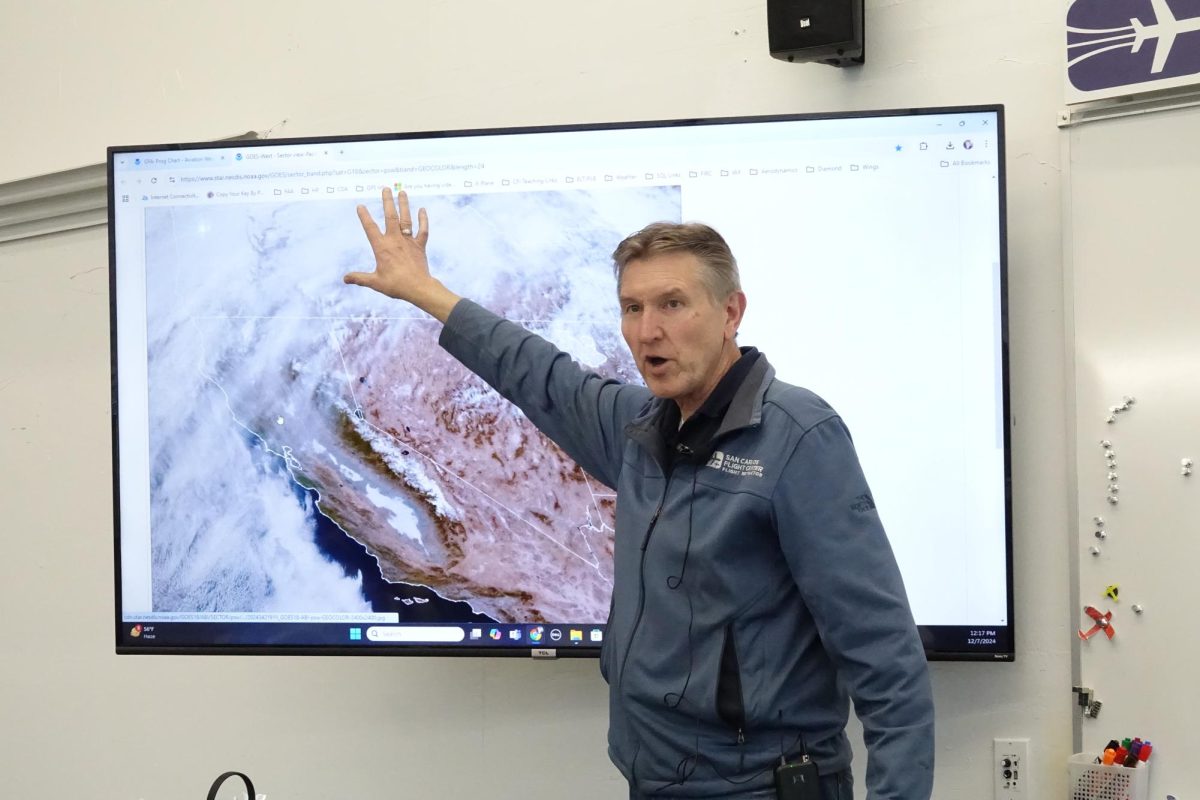The San Carlos Flight Center (SCFC) held its annual Weather Services Workshop as part of its ground school program on Dec. 7.
The seminar is one of 12 in the program, and it provides tools and advice for aspiring and returning pilots.
“Every decision they make contributes to the safe outcome of the flight. The more experience they have, the better their decision-making,” said Herb Patten, a senior flight instructor.
As the primary ground school instructor at SCFC, Patten instructs his students about the intricacies of being a pilot with an emphasis on safety. During the Weather Services Workshop, he provides valuable information and resources that a pilot should recall before leaving the runway.
“Understanding weather and trying to figure out how to interpret weather is a key factor that can help keep pilots safe,” Patten said.
According to Patten, weather is one of the most critical aspects that pilots must look out for because of the dangers it presents.
Poor weather conditions are dangerous because they reduce visibility, increase turbulence, and introduce challenging wind conditions, making it harder for pilots to control the aircraft and make safe decisions.
“It can be life and death. We’ve lost pilots because they made poor decisions,” Patten said.
The 12 lessons included in the ground school program cover the fundamental knowledge that a pilot should know, including aerodynamics, airplane systems, instruments, flight instruments, airport operations, radio communications, weather, and decision-making.
“Ground school is just sort of the theory of everything easier to learn in a classroom,” said seminar attendee Cassie Hilden.
Hilden began training in January and returned to ground school to refresh her knowledge before resuming flight lessons. Despite the steep learning curve, she finds the classes informative and well-structured, offering a unique learning experience unlike anything she has encountered before.
“I really like learning. That’s pretty nerdy, but being able to learn something about something completely different, and it’s just a skill set that’s completely different to anything I’ve ever done,” Hilden said.
With the complications that come with flying a plane, ground school is a valuable tool for students looking to achieve their pilot certification.
While some pilots choose the self-study option, others find the lessons useful while studying for their final exam.
“Some people associate learning to become a pilot with how you learn to drive. You study, you have to pass the test, then you do some training with somebody, whether it’s a parent or somebody else,” Patten said.
As a part of SCFCs partnership with the Upwind Foundation, they provide scholarships for aspiring young students interested in aviation. Patten hopes to eventually partner with Carlmont’s Aviation Club to recruit more students interested in the field.
“Without an accessible flight school nearby, students struggle to gain flight hours early on in their career, something that is essential because of how long it takes to actually accumulate the flight hours to become a pilot,” said Carlmont Aviation Club President Aviraj Dastidar.












